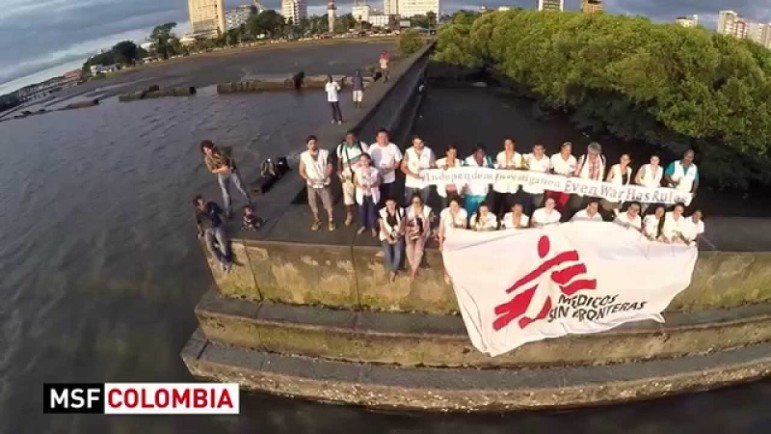
February 26, 2016; Reading Eagle (Associated Press)
The U.S. has announced its compensation to families in what is said to be the deadliest assault on civilians in the 15-year War on Terror.
The families and kin of the Afghans who lost their lives during the U.S. attack on a Doctors Without Borders hospital in early October—the most recent count is 42—will each receive $6,000 for what U.S. officials have called “a mistake.” According to a report from the Military Times, of the 42 victims, 14 were employees, 24 were patients, and 14 were visitors or caretakers. The 27 wounded survivors will each receive $3,000, according to a report by the Associated Press.
A representative from Doctors Without Borders in Afghanistan, Guilhem Molinie, said the amounts were ridiculous and inadequate “compensation for loss of life.” The amounts could cover a funeral or some injuries, but would not last for families “who had lost [their] sole breadwinner.” According to a 2010 report in Asia Times, the average income for Afghanistan workers has risen sharply since 2004 from just $70 a year to $426, but it’s no surprise that the war-torn country remains one of the world’s poorest areas.
In contrast to this recent decision, Afghan families who lost loved ones in the intentional village attack by Staff Sgt. Robert Bales three years ago each received $50,000, and the injured received $11,000. At the time, an unnamed Afghan official told ABC News, “The villagers aren’t like animals you can buy. It’s a lot of money, but their children aren’t coming back.”
Sign up for our free newsletters
Subscribe to NPQ's newsletters to have our top stories delivered directly to your inbox.
By signing up, you agree to our privacy policy and terms of use, and to receive messages from NPQ and our partners.
Surrounding these two disparate payments for loss of life and injury is a question: “What is the price tag on a human life?” Is any amount reasonable, and when is it considered an insult?
NPQ has covered the details of the Syrian Hospital attack closely. Not long after the attack, the U.S. reported that they had mistaken their target location and attacked the hospital in error. In an official report to the Pentagon, the top U.S. commander in Afghanistan said that Afghan forces had requested the airstrike, stating that they were under attack when the U.S. gunship was redirected to come to their aid. (This took place during what was then a three-day takeover of the town by the Taliban.) Fatal errors accumulated, leading to what would become a brutal disaster. In our October 8th newswire, Dr. Joanne Liu, the international president of Doctors without Borders, said that the hospital’s patients burned in their beds and medical staff were killed while working. By the end of the year, we reported, “Firsthand accounts [indicated] hospital patients and staff were shot as they fled from the hospital.”
As we look at these two accounts, the reason for the distinct difference in the payouts remains unclear. Since the dollars granted to the families are a fixed sum, it would indicate that the calculations are not likely based on details such as prior income, need to sustain a family, or degree of injury sustained. Perhaps it’s that Staff Sgt. Bales had intent to kill, making those deaths the result of more malicious act while the events in early October unfolded during an effort to provide aid and are reported to be a consequence of human error. It could be the U.S. military has lessons learned from prior payments, or that budgeting played a role. One report even alluded to the Afghan practice of “blood money” and the role that it plays in an attempt to instill justice, stating that it’s common for tribal elders to keep the peace by providing some combination of apology, promise of punishment, and cash in response to a killing. Regardless of method or reason, this cannot be an easy determination or process.
As we reported in October, Obama apologized for the event. The call for investigation we reported in late December led to the suspension of “multiple servicemen,” and the Pentagon’s determination in uncovering ways to avoid future tragedies. Now, the U.S. has released cash to families. If the Afghan practice is an effective strategy for peace in a war-torn country, the U.S. has checked the boxes. Officials cannot undo what has taken place, and dollars do not equal healing; however, these acts of support by Obama and U.S. officials do have the potential to lessen pain and suffering. The final question for our readers is, are these responses needed, and if so, what is enough?
On a final note, it is the policy of Doctors Without Borders to “not accept funding from any governments for its work in Afghanistan and other conflicts around the world.” Accordingly, DWB has turned down offers of compensation from the U.S. in connection to the hospital that was destroyed and forced to cease operations in Kunduz.—Michelle Lemming












